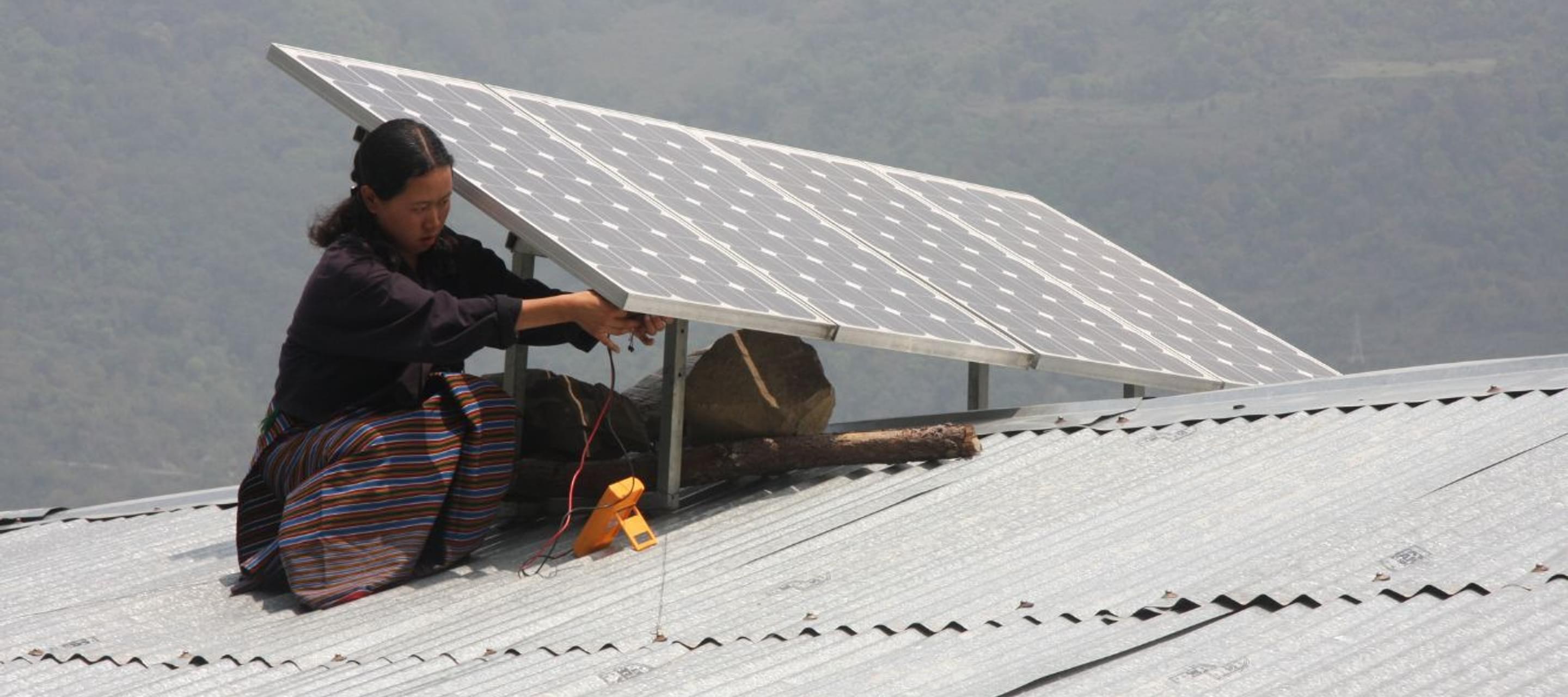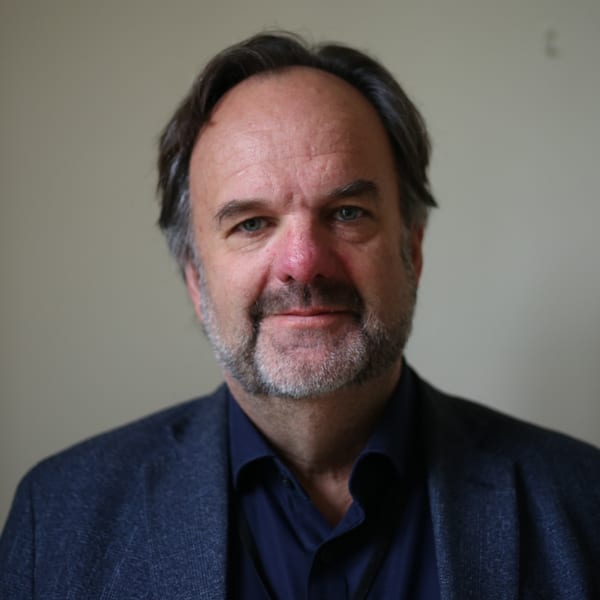Just Transitions: Exploring the Need for International Rules Based on Local Realities
5 October 2022

This week, IHRB is collaborating with the UK’s Wilton Park to hold a global dialogue on just transitions. At the centre of our discussions is the growing need for clearer rules of the road to guide how net-zero transitions around the world are implemented and managed, in particular their social impacts.
Coming to grips with how just transitions can be most effectively implemented in specific energy, agricultural, built environment, manufacturing and other sectors is necessary in order to reach net zero by 2050. But net-zero transitions by countries, counties, and industries also bring with them significant disruption for workers, communities, and consumers. So our dialogue aims to go deeper, and discover how to better align the factors that shape the supply, demand, and financing components of how these transitions are being designed and implemented.
Our Wilton Park dialogue seeks to explore how we can move collectively and quickly towards the quality control, comparability, and accountability needed to guide all the new initiatives now underway
The reality is that despite significant progress on this agenda in recent years, thanks in large part to the pioneering efforts of the trade union movement and many others, there are widely varying definitions and interpretations of what exactly “just” means in each transition context (more on this below). By bringing a diverse group of stakeholders together to explore this tension, we aim to get a better sense of what is needed to achieve greater comparability, accountability, and quality-control of all transitions globally.
Climate change itself is already resulting in profound harms for individuals and communities around the world, especially for those who are the least responsible for causing it. Ongoing discussions relating to Loss and Damage and other aspects of Climate Justice, as well as the Adaptation and Resilience agendas, are all interconnected. Communities and countries most affected by the “transition out” of high carbon activities and the “transition in" to greener economies are already feeling the adverse impacts of climate responses – some necessary, others avoidable – to say nothing of the historical injustices of the “carbon debt” that the global North owes to the global South.
Given the urgency of the moment, we must ask now if the just transition concept needs shorter-term guardianship and quality control to avoid it going the way of “CSR” or “ESG” and meaning too many things to too many people – and therefore nothing to anyone.
Raising these complexities is not about adding to green washing or what might be called “delayism”. It is not about balancing social considerations against very necessary climate action. It is about managing the social consequences of climate action that must happen at speed and without delay. Not discussing the potential social risks and how they might be managed – to only discuss the opportunities of the green transition and not its costs – cedes the more critical narrative away from those committed to climate action to those who might wish to stoke fear, misinformation and doubt about the need for urgent climate action itself.. The fact that climate is not just an environmental, scientific, technical, and financial issue – but also a profoundly social one – is perhaps our new “inconvenient truth’. Social opposition to the changes that are so urgently needed in all countries is perhaps one of the greatest challenges we now face to reaching our global climate goals.
Stakeholders are still a long way from being clear about precisely what is meant when talking about “just transitions” across countries and sectors. The International Labour Organization and International Trade Union Confederation have played an important role thus far in developing normative guidelines and guidance for governments, employers, and unions, and will continue to be critical in the time ahead, as with other UN and intergovernmental bodies central to standard-setting and accountability in this arena. But further progress on standard setting at the global level will take time, perhaps several years. Given the urgency of the moment, we must ask now if the just transition concept needs shorter-term guardianship and quality control to avoid it going the way of “CSR” or “ESG” and meaning too many things to too many people – and therefore nothing to anyone.
The actual work of implementing just transitions will need to be heavily contextual and rooted in place – often at the sub-national level
One concrete example of this is the rapid development of what are now called “Just Energy Transition Partnerships” or JETP’s. Last week we were in Cape Town with the South African Presidential Climate Commission and the African Climate Foundation at a knowledge-sharing session on how the initial $8.5 billion of international finance, announced at COP26 in Glasgow last year, would be deployed. Governments and other stakeholders from across South Africa and other parts of Africa, in particular Nigeria, Senegal, and Kenya, as well as the wider global south, including India, Indonesia, the Philippines, and Brazil participated in these important discussions. When it comes to the transition out of coal (and hydrocarbons more generally), South Africa is clearly becoming the global model for all others and therefore a case to watch carefully.
If this is to mean anything in human rights terms, the actual work of implementing just transitions will need to be heavily contextual and rooted in place – often at the sub-national level. Does this mean we need to worry about different and competing just transition definitions? We think we do, for at least two reasons:
- First, the issue of ensuring quality control. Without a clear definition and criteria, it is impossible to measure how many of these new partnerships are in fact meaningfully and concretely “just” at all. Whilst there is plenty of private finance out there for green energy investments, projects that have explicit justice elements are much fewer and far between, and perhaps might be less attractive to mainstream private investors and more reliant on sovereigns. There is a real fog between what is termed “net zero development partnerships” and those that are rigorously focused on justice elements. We just don’t know the answer to this question yet, and it is unanswerable unless we know what we are measuring in “J” terms.
- Second, the fact that we already have a new acronym – “JETP” – is both testament to how fast this field is moving and poses a risk to its integrity without clearer criteria around its meaning. Given the urgent need for action, there is a risk that markets and governments will simply accept that the acronym is generally a useful framing but forget what the letter “J” stands for. There is a real danger that the “J” in “JETP” becomes like the “S” in “ESG”.
Communities, including most importantly indigenous groups, workers, consumer groups, and others need to have agency in the transitions that will affect their lives and livelihoods.
So our Wilton Park dialogue seeks to explore how we can move collectively and quickly towards the quality control, comparability, and accountability needed to guide all the new initiatives now underway. Some international rules of the road for all actors that have a role to play, governments, businesses, financial actors, but also civil society and importantly trade unions. Arguably, we already have some of the human rights and labour standards and tools necessary to perform this task and can work together to apply these – clarifying the way toward new or firmer binding standards in the time ahead.
Whatever is developed needs to have direct relevance at the local level. Communities, including most importantly indigenous groups, workers, consumer groups, and others need to have agency in the transitions that will affect their lives and livelihoods. We know that human rights risks are clear and present dangers not only in transitions out of current high carbon industries, but also within transitions to renewable and low-carbon technologies. In energy terms, we are moving to a world of more mining not less, as the rush for transition minerals and greater control of their value chains becomes an issue of increased competition and sometimes conflict. So there is a very important procedural component to the rules that need to be developed – freedom of information, consultation, free, prior, and informed consent, non-discrimination. And beyond this, there is a need for new models that provide much greater community and worker ownership or equity in the energy, agricultural, and technological systems of the future.
South Africa and a small number of other countries offer an important starting point. There is good work now underway looking at how different forms of justice – procedural justice, transitional justice, and redistributive justice – might help us anchor the just in just transition. Our challenge is to bring good practices to scale, and agree on where shared standards and shared responsibility can help shape a just transition globally.
We look forward to the discussions ahead.





